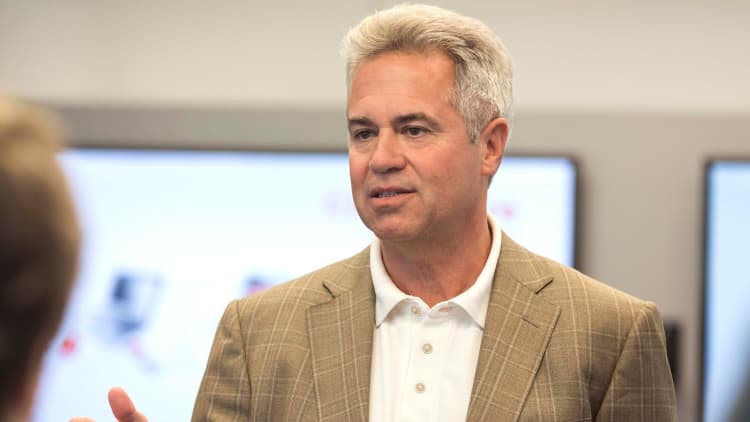Although there's no "one-size-fits-all" approach to managing, research shows that when bosses are focused on being motivational leaders, their good habits trickle down to their employees.
Being an effective manager is also more than just working harder, says Jeff Black, the communications expert and founder of leadership development company Black Sheep.
In addition to advancing their own careers and providing authority, successful bosses should focus on being authentic, positive influences for their coworkers and peers.
Here are the top six traits that the most influential and effective leaders possess, according to Black.
They are vulnerable
By making him or herself vulnerable in the workplace, Black says a manager can establish an authentic connection with other employees.
"I'm a big believer that leaders need to be vulnerable and admit that they are not perfect, that they have made mistakes before and that they have learned from them," Black says. "You're there to be a lifelong learner, just as the employee is."
Black adds that leaders should be gracious, warm and empathetic.
They are approachable
Black says influential bosses need to slow down their walk and talk by at least 10 percent so that they look calm, confident and in control.
If a manager is speeding through the office, "it causes them to look like they are in a rush, hurried or unprepared," and ultimately makes him or her look distant and inaccessible.
"Today, employees want to follow leaders who look approachable," Black says.
They are active participants
Even when they are not the ones commanding a meeting, a thoughtful leader does his or her part to be engaged.
A good leader can support his or her employee by doing the following, according to Black:
- Getting to meetings on time or early
- Giving off positive body language
- Sending cues if they think something is going wrong
- Adding a comment if they feel like the employee is going off track
"They don't need to take over the meeting because that employee really needs the opportunity to develop his or her executive strategic communication skills," Black says.
They live in the moment
Black says successful leaders make sure to take what he calls "human moments." Leaders all too often get so distracted by technology and interruptions that they forget to be present with their employees.

"We don't take a moment just to create an opportunity to really connect with an employee who is perhaps in our office, in the hallway or whatever it might be because we're so busy looking over our shoulder to see what's coming down the hallway, " Black says.
He recommends keeping laptops off and avoiding cell phones during meetings.
They are servant leaders
In 1970, Robert K. Greenleaf founded the "servant leadership" movement, which sets the following distinction: Traditional leadership generally involves the accumulation and exercise of power by one at the "top of the pyramid," while the servant-leader shares power, puts the needs of others first and helps people develop and perform as highly as possible.
"I just think employees are thirsty for someone who isn't just so much all about the bottom line," Black says.
Although keeping company goals in mind is important, Black says employees want bosses with a "real servant leadership mentality," or ones who give back to the company and are involved in charitable events.
"I want to hope that servant leadership is making a comeback," Black says.
They are 'compelling' storytellers
Although PowerPoint is still a critical tool for companies, Black says managers seeking to positively influence others are able to ditch the presentations slides and tell powerful stories.
"Let me tell you, at the end of the week they will never remember all that data on a PowerPoint slide," Black says."But they will never forget a compelling story they heard from one of their leaders. So get back to just good, old-fashioned storytelling."
Black says we live in a world today where we want to follow leaders who instill confidence in us, even in very difficult and uncertain times.
Being an efficient storyteller, Black says, means being a leader who is "able to communicate the vision of that company in very simple ways without a lot of company jargon and with good, profound stories that make me and make others want to follow them and to give them our best every day when we go to work."
See more:
The No. 1 personality trait of highly successful people across 8 industries
LinkedIn CEO Jeff Weiner: Here's what separates successful leaders from managers

Like this story? Like CNBC Make It on Facebook.

